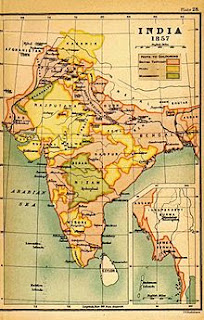The history of India begins with proof of human activity of Homo sapiens as long as 75,000 years ago, or with earlier hominids including Homo erectus from about 500,000 years ago.[1] The Indus Valley Civilization, which spread and flourish in the northwestern part of the Indian subcontinent from c. 3300 to 1300 BCE, was the first major development in India.[2] A sophisticated and technically advanced urban culture developed in the Mature Harappan period, from 2600 to 1900 BCE.[3] This Bronze Age civilization collapsed before the end of the second millennium BCE and was followed by the Iron Age Vedic Civilization, which comprehensive over much of the Indo-Gangetic plain and which witnessed the rise of major polities known as the Mahajanapadas. In one of these kingdoms, Magadha, Mahavira and Gautama Buddha were born in the 6th or 5th century BCE and propagated their śramanic philosophies.
Almost all of the subcontinent was conquered by the Maurya Empire during the 4th and 3rd centuries BCE. It subsequently became fragmented, with various parts ruled by numerous Middle kingdoms for the next 1,500 years. This is known as the traditional period of Indian history, during which India has sometimes been estimated to have had the largest economy of the ancient and medieval world, calculating between one third and one fourth of the world's wealth up to the 18th century.
